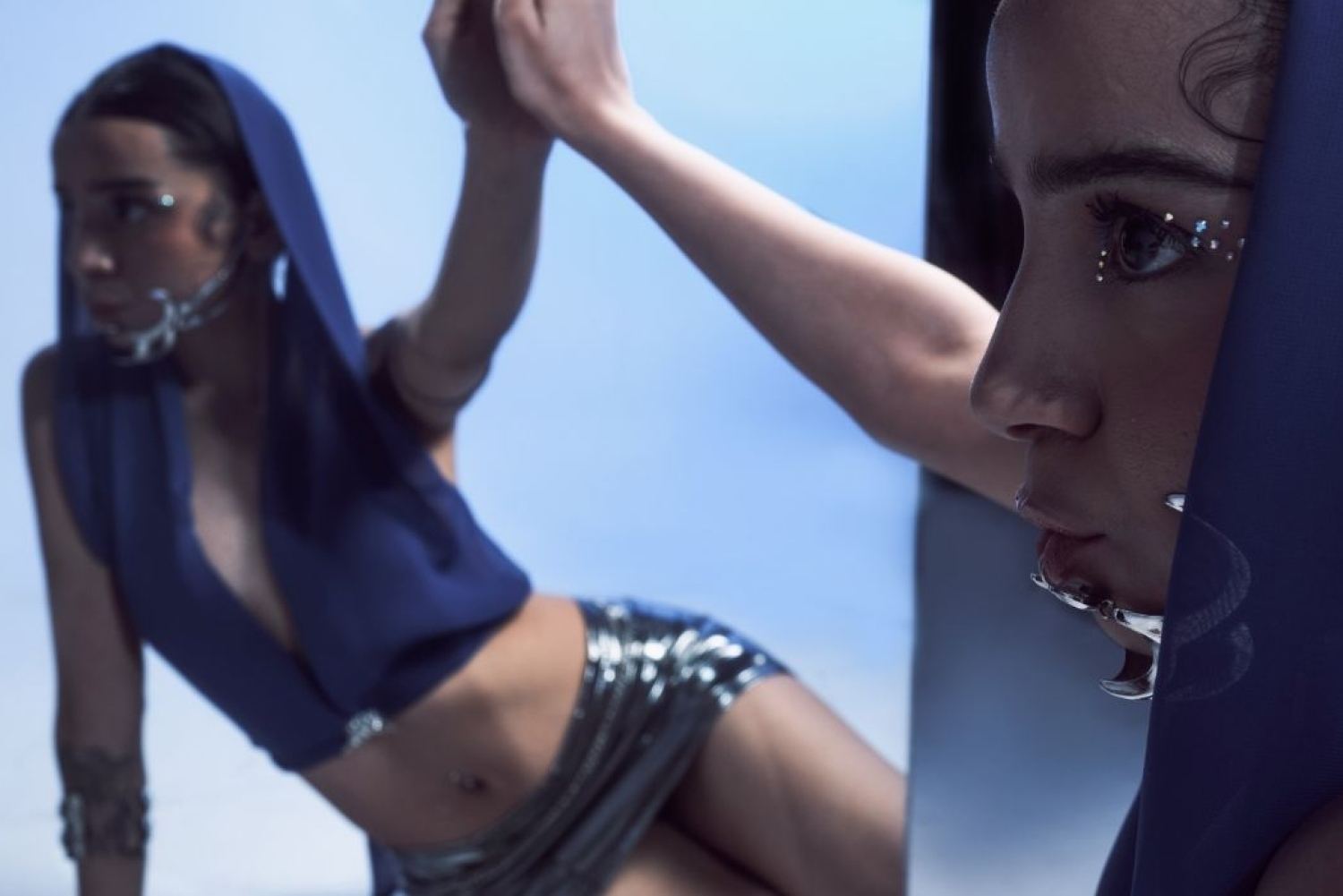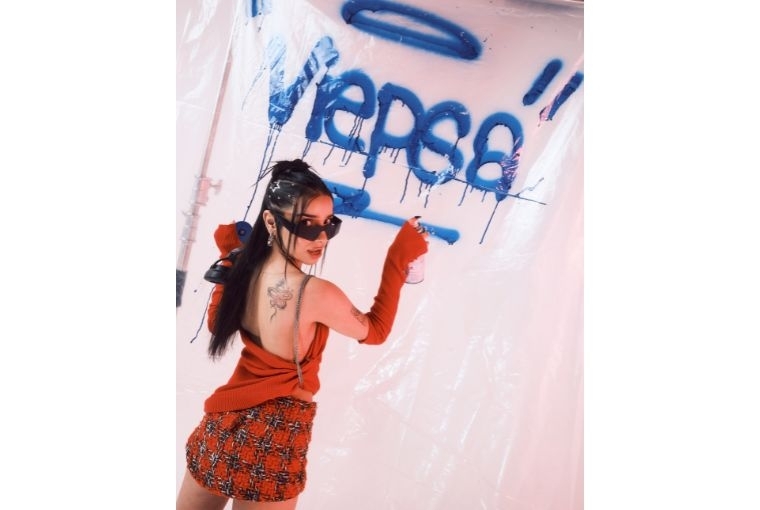

Viepsa has a quietly electric energy. This Delhi-born artist refuses to confine herself to a single genre—why should she? Her music flows through Hindi, Punjabi, Urdu, and English. One moment, it’s alt-pop; the next, UK garage; and then it transforms into a sufi-infused DnB anthem. It’s not experimentation for experimentation's sake; rather, it feels as though she is guided by her instincts, exploring each new door that opens.
Over the past few years, Viepsa has been shaping up her musical identity. Drawing on her background in psychology, her obsession with Rumi, and a fearlessly intuitive songwriting process she compares to a ‘Frankenstein experiment,’ she’s writing songs that explore selfhood, language, divinity, and chaos, all wrapped in hypnotic production and melodies. And with her upcoming album in the works, the world is only just beginning to tune in.
Her Sound & Evolution
I view different sounds as physical planes in a vast interconnected web. I started with the familiar plane of English alt-pop, travelled through Hindi singer-songwriter-esque music, and dabbled in the realm of fusing Hindi, Urdu, and English with experimental production styles. Last year, I had a breakthrough in my journey when I attempted to produce a DnB track written in Punjabi with rap verse. The way I view it is that I walk into different planes of sound and language and just sing my heart out. Some would say it’s risky to keep pivoting like this, especially when the number 1 advice emerging artists get is to pick a niche. However, I feel like the risk paid off, and truly magical things have now started emerging from the studio. You’ll see what I mean with my upcoming releases.
Fusion Sound & Collaborations
I have a lot of fun writing a sickening amount of parts for a single song. Initially, it’s 3, sometimes 4 different songs, which I then operate on. It’s like a little Frankenstein lab but in the most whimsical, girly-pop, non-horror way possible. The result is sometimes songs like SO JA/SLEEP, which I love. Other times, it’s a face only a mother could love, so obviously never sees the light of day,
I distinctly remember the moment I had the idea for BEKADRAN. Summer ’23, I was trying on denims in the trial room of a thrift store in Sheffield, copping a fit to go see Yung Singh. That’s when I unexpectedly heard Punjabi vocals on a UK-garage track. Shazam said it’s RDB. My face lit up like a Christmas tree, it was like a divine sign, an instant knowing of what I had to do.
Calm and I had been following each other’s work on social media for a while, admiring from afar. This was my first text to him, 'I think it's time, mate, let’s do it. ' 48 hours later, this G sends me the verse, and the rest is history. Raj and I had already been working on our track VAARI, when I felt like BEKADRAN needed some Raj-ness too. We completed the track in like 4 days.
RUMI'S REVENGE & Divine Downloads
RUMI’S REVENGE came about after I had completed a first draft of BEKADRAN. The electronic sound was already working well for me and that was no surprise since that’s the kind of music I usually listen to. For some reason, though, I naturally found myself gravitating towards talking about god and the divine feminine every time I hit record.
I had to dig in to find that the root was Rumi’s poetry that I read as a teenager. So it wasn’t a conscious decision to blend Sufi themes with electronic music, believe it or not. All my years of fusing influences have now become a subconscious process. I’m always surprised when I’m working.
Psychology Background & Multilingualism
I certainly think it enhanced my understanding of my own emotions, which carry through in my songs. I also did my Master's in Psychology of Music purely because the more music I made, the more I realised how psychological well-being and music are inextricably intertwined. Being curious and conscious about the human mind is the common thread between my songs and my academic pursuits. It’s the holy trinity of music, psychology and spirituality that moves me to my core—and that’s all you need to write lyrics that resonate.
The motivation is creative hunger and my enormous ambition, of course. I don’t intend on stopping at Punjabi music. It was a pitstop, not the destination. My upcoming music is for a global audience, so I guess limitlessness is the only destination. As for my existing audience, the real ones have stuck around for all of it because they love me unconditionally, and so do I. Perhaps they can hear my unconditional love for them in my voice, no matter what language I choose to sing in.
Being Independent & In Control
Collaborations between independent artists is a bit tough to navigate sometimes. Good musicians don’t always make good negotiators. As creatives, the business aspect is not always our strongest suit. The best thing to do here is to find people in the business you can trust and form an ecosystem around you that has professionals like managers, booking agents and lawyers on your team.
Thinking about life makes me excited right now, and I want this feeling to last forever. The music business has its limits, just like the human body does. I will only be able to sing and tour for so long, but if music outlives my active career, I will be a happy ghost.
A series of synchronicities led me to Phil Dane, a really cool, eccentric English gentleman who came to Goa after making records with big shots in London for decades. I got signed to a UK-India-based label called Atma Music, and now Phil and I are working on my debut album, set to be promoted throughout Europe and North America.
My first single from this album, Turbulence, is coming out shortly. I can’t help but acknowledge how much this has changed my approach to music and the scope of my career. I hope aliens listen to my record one day because there is no limit.
Words Harita Odedara
Date 12.05.2025
